Foreign Body Dangers: Watch What Your Pet Eats
General

Foreign Body Dangers: Watch What Your Pet Eats
With their natural curiosity, tenacity, and mischievous nature, animals are constantly investigating their world—with their mouths. They often taste interesting things in their environments, and will quickly gobble down items that seem intriguing, or too delectable to ignore. Almost every day, our emergency and surgery departments treat animals who eat items (i.e., foreign bodies) that cause problems, from toxicity to obstructions. Although our veterinary team is always ready to help when your pet gets herself into trouble, keeping her away from foreign objects altogether would be much less stressful.
If your pooch or feline friend is prone to eating things she shouldn’t, you should be aware of the potential dangers of foreign body ingestion, so you know what to do when she swallows a sock or devours a toy.
FOREIGN BODY TOXICITY IN PETS
Some items your pet may be tempted to eat can cause toxicity as they move through her gastrointestinal (GI) tract. For example, if your pet eats a coin or other metal item (e.g., nuts, bolts, and other galvanized metal products) that contains zinc, her stomach acid may dissolve the metal, and allow the zinc to be absorbed into her bloodstream. Zinc toxicity causes severe red blood cell damage, which can lead to life-threatening anemia and can be fatal if the item is not removed, and treatment not started promptly.
Lead-containing items, such as fishing sinkers, paint chips, batteries, and solder, can be equally dangerous. If your pet ingests any solid object that may contain metal, your family veterinarian must evaluate her immediately. An X-ray will typically locate the object which, if detected early, can often be removed with endoscopy instead of more invasive surgical procedures.
FOREIGN BODY GASTROENTERITIS IN PETS
Some items that may not be toxic can still cause significant irritation and inflammation during their trip through your pet’s stomach and intestines. Items such as bones or mulch pieces that have sharp edges and rough surfaces can traumatize your pet’s GI tract, and lead to severe diarrhea, often containing blood. Your pet may need hospitalization for the resulting dehydration, plus intravenous fluids and medications while her GI tract heals.
FOREIGN BODY OBSTRUCTION IN PETS
Inflammation caused by a passing object is concerning, but the situation can become much worse if a foreign body is too large to go all the way through your pet’s GI tract, and lodges in her stomach or intestines. If your pet develops a GI obstruction, no food can move past the lodged object, and she will develop vomiting, abdominal pain, and dehydration. If not treated immediately, a GI obstruction can cause a perforation, or hole, in the intestinal wall, and bacteria-contaminated GI contents can leak into your pet’s abdominal cavity. This will cause her condition to deteriorate rapidly, and urgent treatment is critical.
GI foreign bodies are typically diagnosed with X-rays, possibly with a contrast agent, to confirm an obstruction is present, and to locate the object in your pet’s extensive GI tract. Once identified, the object will be surgically removed. If intestinal damage has occurred, a resection and anastomosis, which involves removing the affected section, and suturing the open ends together, will be performed. If you think your pet may have swallowed a foreign body, visit your family veterinarian immediately, before life-threatening complications develop.
LINEAR FOREIGN BODIES IN PETS
Cats, in particular, are drawn to string-like items, which may include:
Ribbon
Yarn
Rope
Tape
Fabric strip
Christmas tree tinsel
If your cat eats a linear foreign body, one end can become caught up or tethered, for example, around the tongue base, which will cause her intestines to bunch up, or plicate, along the rest of its length. As the intestines continue their propulsive motion, they will rub against the string and can wear a hole in the intestinal wall. A perforation will lead to peritonitis, an abdominal infection that can be deadly, if not treated quickly. If you suspect your cat has ingested a foreign body, contact your family veterinarian immediately for further evaluation. Early intervention can significantly reduce the chances of her developing a serious complication from this dietary indiscretion. Early intervention may also provide you with non-surgical options, such as endoscopy, to remove the foreign material from her stomach. Once the foreign material has progressed to her intestine, endoscopy is no longer an option.
The bottom line is this: Despite our best efforts, pets are going to eat things they shouldn’t. As an astute owner, watch your pet closely for vomiting, lethargy, and dehydration, and have your family veterinarian evaluate her if she becomes sick.
If you think your pet has ingested a foreign body, and your family veterinarian is unavailable, contact us or bring your pet to our emergency department.
